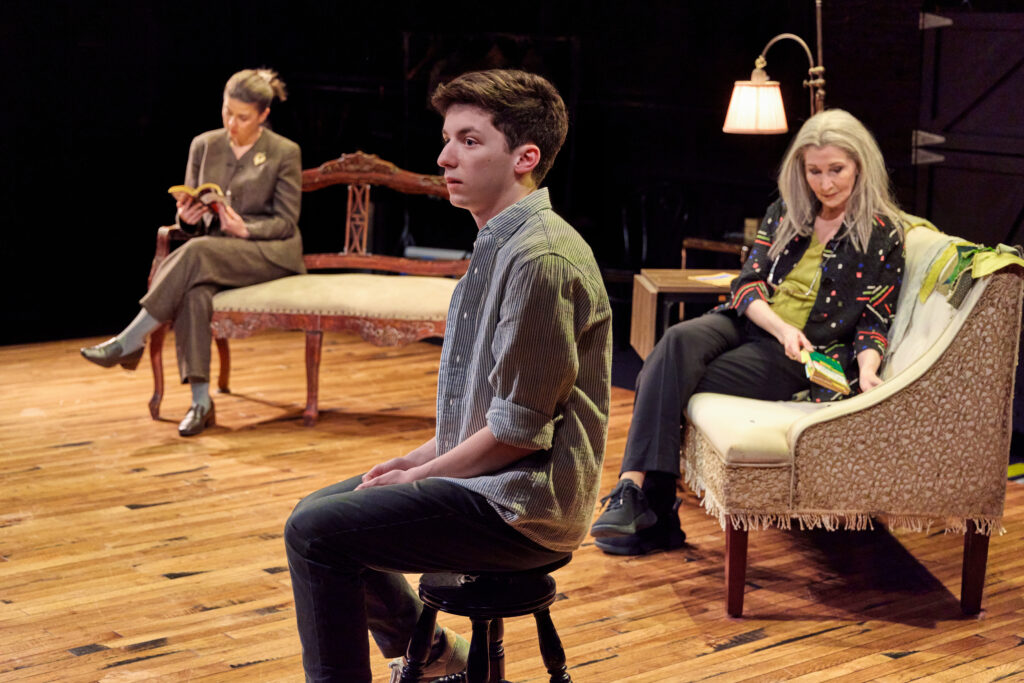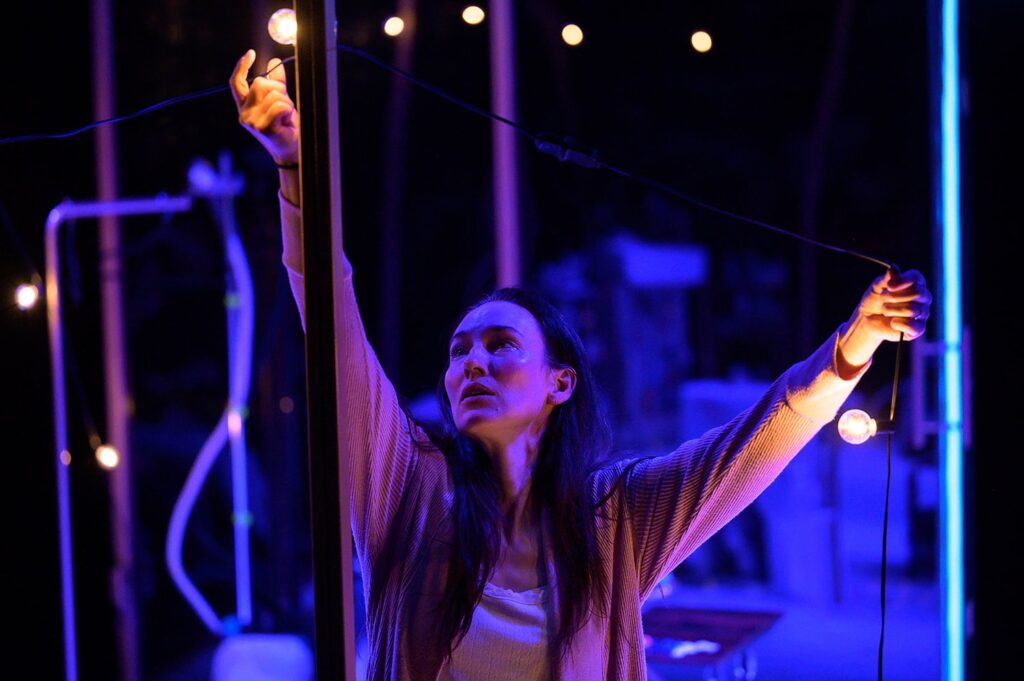VIEWPOINTS – Mental wellness and parenting: Joshua Harmon’s WE HAD A WORLD and Max Mondi’s MAYBE TOMORROW
- By drediman
- March 31, 2025
- No Comments
In recent days, I had the chance to take in a pair of dramatic works that deal with mental wellness as it relates to parenting, particularly motherhood. As always, read on for my thoughts on these intriguing new Off-Broadway plays.

WE HAD A WORLD
Manhattan Theatre Club
Through June 15
In my opinion, one of the finest new plays of the season is Manhattan Theatre Club’s current Off-Broadway production of We Had a World (HIGHLY RECOMMENDED) by Joshua Harmon at New York City Center Stage II. In short, Harmon’s latest work is a deeply, wrenchingly personal autobiographical memory play — he doesn’t even attempt to market the work as lightly-veiled fiction — which lays bare and dissects the three-way relationship between himself as an emotionally volatile young man, his bitter and controlling mother, and his cultured and charismatic grandmother, who also happens to be a serious alcoholic. The piece finds the playwright in complete command of the dramatic form, drawing audiences in with not only a devastatingly clear-eyed account of family dynamics, but also an overarching awareness of life’s “greyness” and how mental wellness plays into how we process and deal with the world. But most affectingly, We Had a World is ultimately a bittersweet reminder to cherish what we have while we have it, warts and all. The production’s three performances are simply outstanding, starting with the appropriately youthful Andrew Barth Feldman as Harmon’s stand-in. Narrating the play, Feldman gives a lucid and hugely likable performance that is the perfect conduit into the family drama. Jeanine Serralles’ acidic portrayal of Joshua’s dutiful yet tough-as-nails mother Ellen contrasts strikingly with perhaps the evening’s most captivating turn — that of veteran stage actress Joanna Gleason as his grandmother Renee. Gleason’s performance is nothing short of a masterclass in timing, class, and deeply-clenched steeliness. The MTC production has been directed by Trip Cullman, whose stealthy and fluid staging deceptively stays clear of these first rate performances.

MAYBE TOMORROW
Abingdon Theatre Company
Through April 6
Then we have Max Mondi’s Maybe Tomorrow (RECOMMENDED) at the Mezzanine Theatre at A.R.T./New York Theatres. Even more overtly than Harmon’s We Had a World, Mondi’s new play examines what it means to be a mentally challenged woman in the position of motherhood. The two-hander stars Elizabeth A. Davis as Gail, a woman who — upon giving birth to a baby early in the play — increasingly retreats from the world, eventually deciding to completely live her life within the confines of her mobile home’s bathroom. Suffice to say, Davis’s courageous and raw depiction of this extreme case of postpartum depression forms the centerpiece of the production. Although Gail’s journey is difficult to watch, the Tony-nominated actress imbues the her with a compelling personality that, to a certain extent, allows audiences to sympathize with the character’s point of view and unusual life choices. Playing her indulgent, long-suffering husband Ben, Dan Amboyer is necessarily chipper, giving an admirable performance in a role that’s admittedly little more than a foil for Gail. Although the premise is surreal and a bit absurd — and despite a few mis-cues from a plotting perspective — the piece is never less than fascinating. Thankfully, the potent emotions that are elicited come from a place of specificity. The sense of reality slipping from Gail’s grasp is ingeniously manifested by director Chad Austin, whose claustrophobic production gives the play a voyeuristic quality that only contributes to its unsettling nature, while seamlessly accommodating moments during which Gail breaks the fourth wall to convey the alternate reality she’s increasingly living in. What’s missing is the anchoring point of view of the child, without which Maybe Tomorrow ultimately collapses into the category of thought-provoking exercise rather than satisfying drama.

 Copyright © 2025
Copyright © 2025
Leave a Reply